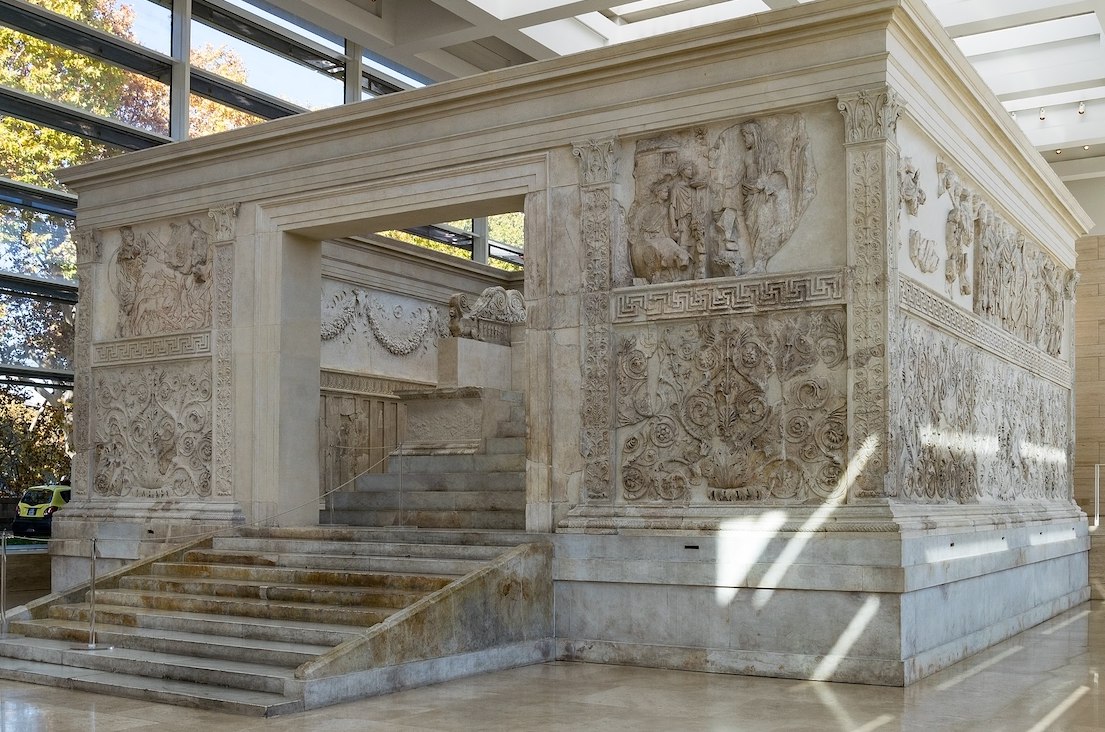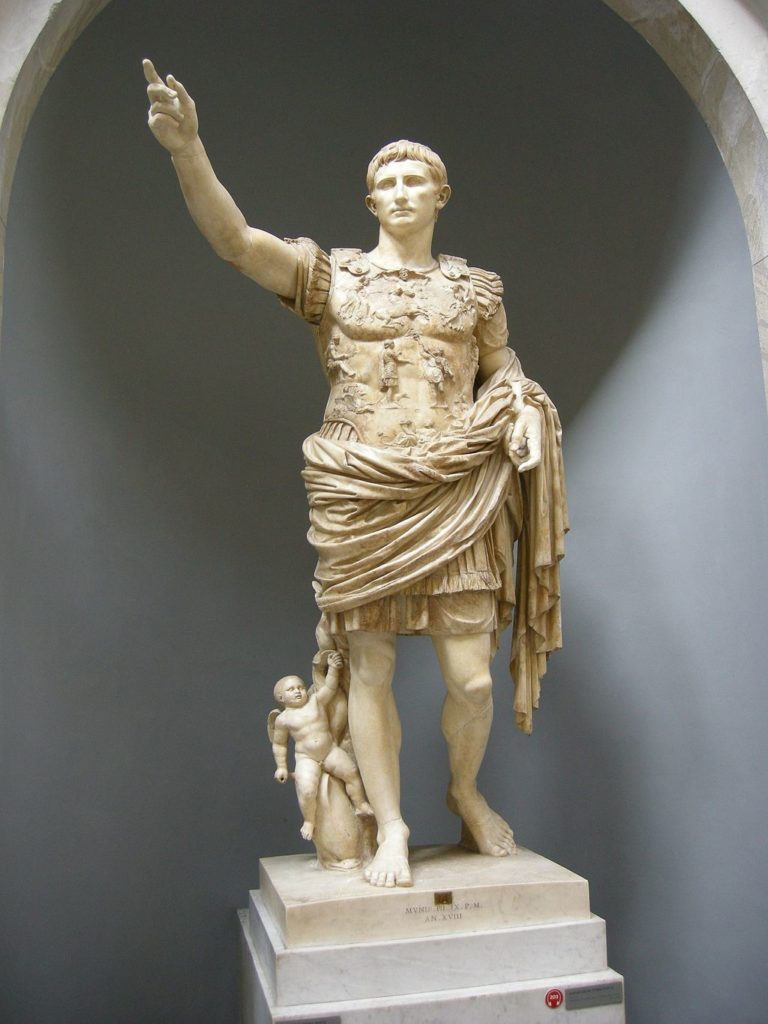
12 Aug WHO WAS AUGUSTUS AND WHY IS AUGUST CALLED AUGUST?
Image of the Ara Pacis (above) by Rabax63, CC BY-SA 4.0 via Wikimedia Commons
Since 1582 our daily lives have been regulated by the Gregorian calendar, a solar dating system that counts our lives in days, months and years. The origin of this calendar goes back much further than this, to ancient Roman times, when society operated under a ten month system. Some months such as marzo were named after gods, while others were simply numbers.
August was originally known as sextilla, the sixth. But in 8BCE the emperor Augustus renamed the month after himself. As you do!!
So who was Augustus and what is his story?
Augustus was a noble Roman, born Gaius Octavian, and adoSpted by his great uncle, Julius Caesar. As a result he changed his name to Gaius Julius Caesar.
Adoption of heirs was common among upper class families in ancient Rome. Romans were very concerned about succession and family legacy and if there was no male heir, it was a common practice to adopt young male family members so that the family name, assets and status could survive.
Julius Caesar intended his adopted son to inherit the leadership but fate intervened. Acting in response to Caesar’s autocratic approach and penchant for radical change, and indeed fearful that he would appoint himself king of Rome, a dissident group of senators carried out the now notorious assassination of their leader, scuttling Gaius’ chances of inheriting the leadership role. In response Gaius joined forces with Mark Antony to fight and defeat Caesar’s assassins in a bloody civil war.
The senate accepted that Rome would thrive under the leadership of Augustus as a single ruler. He was given the title Augustus, meaning the venerable one. His appointment was consecrated by the auguri , a religious group of mystics whose role was to observe and interpret the signs (usually the behaviour of birds) to determine the approval of the gods for any proposed action. This meant that not only was he emperor, but he was also the head priest, and a god.
In English august means a respected, impressive, magnificent, honourable, exalted type of person. So what was so impressive about the emperor Augustus?

Statue of Augustus from the Villa of Livia near Rome
Image by Sailko, CC BY-SA 3.0 and found on Wikimedia Commons
Augustus was first and foremost an astute politician. He had clearly observed and learned from the downfall of his adoptive father Julius Caesar and set out to promote improvement of the status quo without forcing radical change.
His program of improving existing systems of civic government and management resulted in marked improvements to the daily lives of Romans.
He introduced the concept of vigili with the Vigiles Urbani, literally the Watchmen of the City. They were the first urban police and fire fighting forces, and interestingly their name lives on in the vigili urbani, the town police, and the vigili del fuoco, the firefighters in Italy today.
He established the cursus publicus, Rome’s first postal and official transportation service, which conveyed messages, officials and tax revenue between the provinces and Rome. The system involved teams of animals, wagons and drivers moving along routes that connected the various parts of the empire, requisitioning facilities from local communities as they went.
As a clever politician Augustus was also aware of the power politics underlying the gladiatorial games. Under Julius Caesar’s rule, the spending on gladiatorial games had become exorbitant as the elite vied with each other to sponsor more and more extravagant events in order to win prestige and political power. Augustus stepped in to curb this excess, placing limits on both private and public spending and tying the games to the state sponsored imperial religious cult, which of course further strengthened public recognition of the his own position.
Augustus was also interested in the fine arts, and state sponsored artists, writers and philosophers joined the ranks of those surrounding him. He appointed an advisor called Clinio Mecenate whose role was to introduce the best of these people into this circle; and we can thank Mecenate for ‘discovering’ the likes of Horace and Virgil! On top of his interest in the arts, he also completed a massive programme of civic works including the Ara Pacis, the Temple fo Caesar, the Forum of Augustus and the Baths of Agrippa.
Although Augustus was a politician rather than an active fighter, the Roman Empire doubled during his reign. Whether you regard him as the first of the ‘strong men’ or as a model for subsequent politicians, there’s no doubting his achievements. ‘I found Rome a city of bricks and left it a city of marble,’ he said. Under Augustus, Rome saw the end of a republic and the beginning of an empire, the end of internal warring and the onset of a long period of social stability and peace, known as the pax romana.
